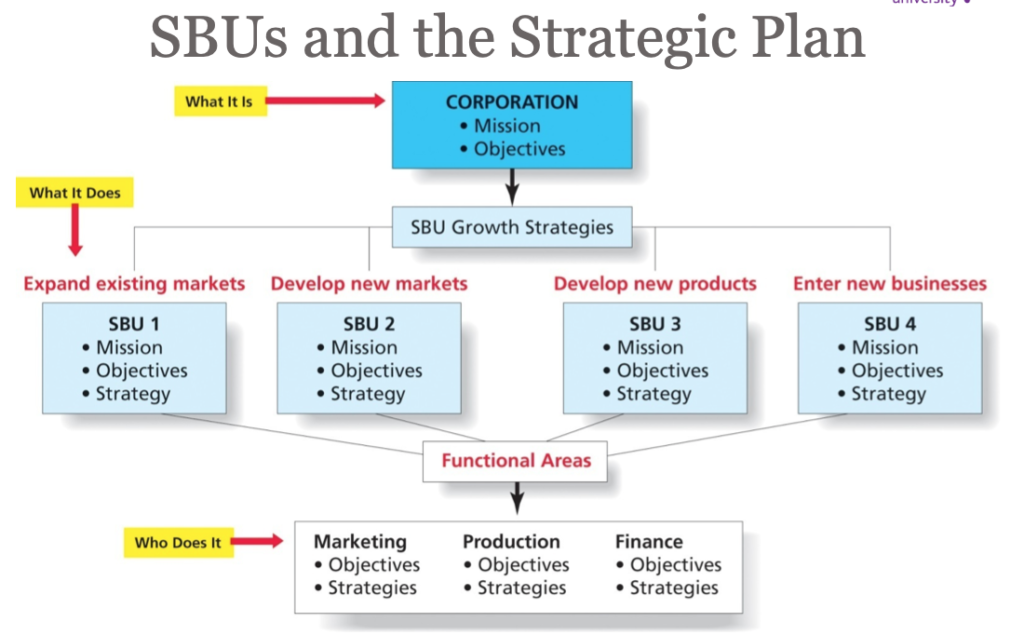Strategic Business Unit (SBU)
According to management scholar Kenneth R. Andrews, a strategic business unit (SBU) is a “separate, identifiable part of a company that formulates its own strategy and is accountable for its own results.”
An SBU is typically a self-contained unit within a larger organization that operates like a separate business with its own strategy, resources, and management team. It is often established based on a product line or market segment that requires a unique set of skills, resources, and market knowledge. The purpose of creating an SBU is to improve the organization’s ability to respond to changes in the market and to be more competitive by focusing on specific customer needs and tailoring strategies and resources to meet those needs.

The key purposes of creating an SBU are:
- To enable better strategic planning: By dividing the organization into separate business units, the management team can better focus on the specific needs and challenges of each unit, and develop strategies that are tailored to those needs.
- To enhance operational efficiency: An SBU is typically smaller and more agile than the overall organization, which allows it to operate more efficiently and respond quickly to changes in the market.
- To improve accountability and performance: By giving an SBU its own management team and holding them accountable for the unit’s performance, it creates a sense of ownership and responsibility that can drive better results.
- To facilitate resource allocation: An SBU typically has its own budget and resources, which allows it to make decisions about how to allocate those resources to achieve its goals, without being subject to the constraints of the larger organization.
Overall, the purpose of creating an SBU is to improve the organization’s ability to achieve its goals by allowing it to be more responsive, efficient and focused on the specific needs of its customers and markets.





